Weekly Thing #240 / Shapes, Tags, Ubiquity
I’m Jamie Thingelstad, and this is my Weekly Thing. Did you know that you can also get this via your favorite feed reader using the RSS feed? Hooray for web standards!
This week I got to join our sales teams at the annual Sales Kickoff. It was a great event. 🎉
As a technology leader I think there is much more in common between high performing sales and technology teams than many might expect.
Sales and technology are both team sports. There are the stories of the 10x developer or the lone salesperson that drags in a deal by themselves. These are largely myths. Great results come from teams of people that know their craft well and work together.
Both sales and technology teams make bets on hitting goals without a defined path on getting there. Ask a sales professional how they are going to hit their goal in the beginning of the year and it sounds a lot like talking to technologists about the things they are going to build and how that will all get done.
Both also have a clear and tested outcome. Sales teams close deals. A deal is either closed or not. You don’t half-close a deal. Technology teams ship software to unforgiving computers. The stuff either works or it doesn’t. No middle ground. Success is judged by others (prospects and machines) and is binary.
There are also ways that they are very different. Sales is very measurable, technology is infamously difficult to measure. The cultures are different. They often speak different languages and acronyms. They tell stories very differently.
But if you dig a little… you find some very similar goal driven people that constantly work to improve at their craft.
Featured
The Magic of Small Databases
I love this idea of small databases. I’ve published this kind of thing on my own website for decades. Thanks to the amazing Wayback Machine at Internet Archive you can see my list of laserdiscs and even my list of CDs from 1992! Even today, one of my main website categories is Lists where I continue to curate things like list of escape rooms, list of vehicles I’ve owned, even cameras I’ve had. These are all small databases.
Let’s think through the kinds of use cases and functionality that is important. I’d say that the core features are:
- Creating collections of objects
- Adding and updating metadata for the objects (ideally in bulk if needed)
- Creating collections, relationships and pathways through the data
- Collaborating on these with others
- Publishing to the web in an easy to consume way, with stable URLs, search etc
- Open standard file formats for export / import / desktop editing
I think the last point is key to building an ecosystem of this stuff. We have CSV files as a kind of open standard for any kind of data - possible to open it in all kinds of applications (or even edit directly with a text editor) and yet we have no standard concept for a database file that you can just open and edit in a range of applications?
As I read this I the screaming remnants of the Semantic Web and Microformats kept ringing in my head. There was a serious push to support semantic metadata to allow any webpage to have this kind of structure. I went deep down the Semantic MediaWiki track which brought the world of wiki editing to that same idea. Semantic MediaWiki is probably the closest realization of what this article asks for. But it was massively too difficult.
At the root of all this I feel is that you’re dealing with a database. As long as that is the metaphor, I think we will struggle with a domain that is too complex. So how do we make the data available in a way that those databases can be completely ephemeral? Microformats seems like the right answer. What is a data version of the web? And how does it interoperate seamlessly with everything else.

Starting the opening session for our annual Sales Kickoff!
Feb 1, 2023 at 9:03 AM
Mystica Lake Event Center
Notable
Amazon Q4 2022 Financials • ongoing by Tim Bray
Bray used to work at AWS, and is not a financial analyst, but is a very smart developer.
Amazon as a whole isn’t really very profitable. Its retail sector loses money, and that loss is made up by the tens of billions of gravy coming in from AWS and Advertising.
Why is this business structure considered rational? And why is it legal for Amazon to be the prime competitor of the economy’s whole retail sector while not having to make a profit?
There are a lot of reasons Amazon doesn’t want to spin off Amazon Web Services, but agree with Bray that they should, and I wonder if the day is coming when they will be required to.
Twitter to remove free API access in latest money making quest - The Verge
This is a big and complicated move by Twitter. Even people that rarely interact with Twitter may be using the Twitter API. And the details are going to be complicated. For example, I get updates from a handful of Twitter accounts using Feedbin and the API integration. How will this work now? Does Feedbin pay? I think the thought is I would pay, which is a whole new authentication thing for partners to handle. What about API usage on platforms like Zapier and IFTTT?
The one thing I’m sure this will do is drop Twitters API demand by multiple orders of magnitude. Along with the changes around third party clients, this is turning Twitter more into a closed ecosystem.
What Shape are You? – Tynan.com
Super interesting article to approach performance conversations and just think about how individuals in teams work together towards a goal, and about the contributions made.
I’ve been in Nick’s shoes before. I began my career thinking of my work as additive. “I’m contributing value,” I thought, “Because I’m writing them this amazing code.” If they criticized me for not doing something else, it made me a bit indignant. How dare they? Didn’t they realize how valuable my addition to the project was?
But it wasn’t an addition. It was a subtraction, just one bit of work from the huge space of work yet to be done. I couldn’t see the bigger picture. I didn’t see all the work that went along naturally with my coding work. Writing that code earned me knowledge that could have given me foresight into future challenges the project would face. If I’d bothered to think about it, I could have communicated those challenges to others and helped develop solutions. It never even occurred to me to do that, but from my manager’s perspective it was obvious that I should: it had to get done, and I was the only one who could do it. I didn’t do it, so it didn’t get done, so the project suffered.
This language of “additive” and “subtractive” is really compelling. Are you adding value in shipping a feature or story. Or are you subtracting from the work to be done to be ready to hit the market with a new thing? Are you burning up, or burning down?
This is worth thinking about more.
Tag Systems
This is a delightful blog post that walks through several different approaches to “tags” in systems. This is a great example why a request to “add tags” to a product is so completely lacking in clarity that there is nothing that you could do. It also highlights how different tagging approaches will work better or worse for the specific problem that you are trying to solve.
Pluralistic: Tiktok’s enshittification (21 Jan 2023)
Super interesting post from Doctorow describing a pattern of value shift over many, many platforms.
This is enshittification: surpluses are first directed to users; then, once they’re locked in, surpluses go to suppliers; then once they’re locked in, the surplus is handed to shareholders and the platform becomes a useless pile of shit. From mobile app stores to Steam, from Facebook to Twitter, this is the enshittification lifecycle.
The pattern he describes has definitely played out many times. And I like his approach that the best remedy isn’t to protect these platforms (err companies) but instead make it easy to get your data out. The ability to hold user data hostage is the thing to fix. Doctorow includes crypto in his thesis here. Certainly the pattern he describes with crypto has happened, but I disagree that it makes the entire domain worthless.
The generative AI revolution has begun—how did we get here? | Ars Technica
Great article summarizing what got us so many advances in AI so quickly. What was the key enabling technology, as well as the approaches that allowed such quick progress.
To sum up, the breakthrough with generative image models is a combination of two AI advances. First, there’s deep learning’s ability to learn a “language” for representing images via latent representations. Second, models can use the “translation” ability of transformers via a foundation model to shift between the world of text and the world of images (via that latent representation).
I found this interesting because it helps frame up domains that are more or less appropriate for these AI models. If you lack a similar structure in a domain, pursing an AI solution to work with it is going to be very difficult.
Inside CNET’s AI-powered SEO money machine - The Verge
Search engines like Google are threatened by other search companies using AI to index and find content better, but maybe even more concerning is the coming deluge of AI generated synthetic text that is going to flood the web and make it incredibly difficult to search and find anything. Also, I’m old enough to remember when CNET was a great site… rubbish now.
Uncle Sam’s Stimulus and Crypto Boom
Didn’t read the entire paper, but the amount of pandemic forgivable loans that ended up going into crypto assets is something we need to understand even better. That was not the intent of the money.
Government lending to small businesses (PPP) significantly increased households’ interest in crypto assets. Using a Bartik instrumental variable for PPP distribution, we find that a one standard deviation increase in PPP disbursement is associated with an increase in crypto-related Google searches. A 100% percent increase in PPP disbursements is also accompanied by a 2% increased number of new wallets, 10% higher trading volume, 23% higher miners’ revenue, and a shift from large to small addresses, suggesting that government assistance increases the demand for cryptos, particularly among new, retail investors. We further find that about 5-14% of PPP loans are diverted to crypto assets, rendering PPP less effective in maintaining employment. Our results are stronger for MSAs with a less educated population, supporting a house money explanation.
No skin in the game.
ChatGPT’s killer enterprise use case will be managing knowledge | VentureBeat
This seems right to me. If you look at early results where ChatGPT has attempted to pass certifications or tests for certain professions the place it does well is when indexing and summarizing a large set of data is the primary job. All that information already exists for learners to work with today, and having AI do the same seems obvious and just around the corner.
Setting engineering org values. | Irrational Exuberance
Another great post from Larson on something that I’ve personally had some experience with as well. At SPS we have Technology Principles to serve the function that Larson describes here, and they work really well. I hadn’t done anything like that in previous companies, and I had to work through all the same things that Larson outlines here, including how the Tech Principles would complement the overall Company Values.
We’ve had them for a few years now and they do serve a very important role for teams as they design solutions.
We invested 10% to pay back tech debt; Here’s what happened
Super simple approach to dealing with software modernization as well as the results that came from it. On the face of it, I would argue against this approach with the reason being that static allocation of investment (10%) is too simple to factor in the opportunities you are evaluating. On the flip side though, Keep-It-Simple-Stupid is a real thing and simple allocations sometimes work better, even if not optimal.
The coming ubiquity | Seth’s Blog
I think Godin is onto something here.
But the real impact of AI isn’t going to be that it regularly and consistently does far better than the best human effort.
The impact will be that it is widespread, cheap and always there.
Search for anything and the Wikipedia page will ‘write itself’ just for you.
We are going to need new ways of proving authenticity and authorship of content very soon. I want to see methods to cyrptographically sign all of my content with my thingelstad.eth wallet.
Wolfram|Alpha as the Way to Bring Computational Knowledge Superpowers to ChatGPT—Stephen Wolfram Writings
Super interesting breakdown of different “fact based” questions comparing how ChatGPT does it with Wolfram|Alpha. As I read this I was left thinking that just as our brains have different regions that do different jobs, AI is perhaps the same way. Why not have Neural Nets doing what ChatGPT is doing, but then a different part doing the fact work. Connecting all this together is going to be incredible.
The Galaga no fire cheat mystery
Galaga is one of my favorite arcade shooters ever. I had no idea about this cheat!
In the classic arcade game Galaga (1981), there is a well-known cheat for those who are patient. If you destroy all of the enemies on Stage 1 except for the left two enemies (shown to the right), then dodge their fire for about 10-15 minutes, they stop firing at you. At this point, you can safely kill them and no enemies will fire at you for the remainder of the game (they can still crash into you to kill you though).
I have some Galaga emulators and am going to try this cheat on them.
Call of the Void: Seven years on, what do we know about the disappearance of Malaysia Airlines flight 370?
I found this writeup of the Malaysian Air flight that went missing incredible. I haven’t followed the story, but this does a great job of catching you up and then draws out a conclusion that is shocking, and pretty hard to argue. Found via Five Things on Friday #341.
Journal
The Product Partner Fair for #TeamSPS 2023 Sales Kickoff is a whole new level of awesome! Tremendous amount of information, and even an incredible Command Center theatre experience! 🥸



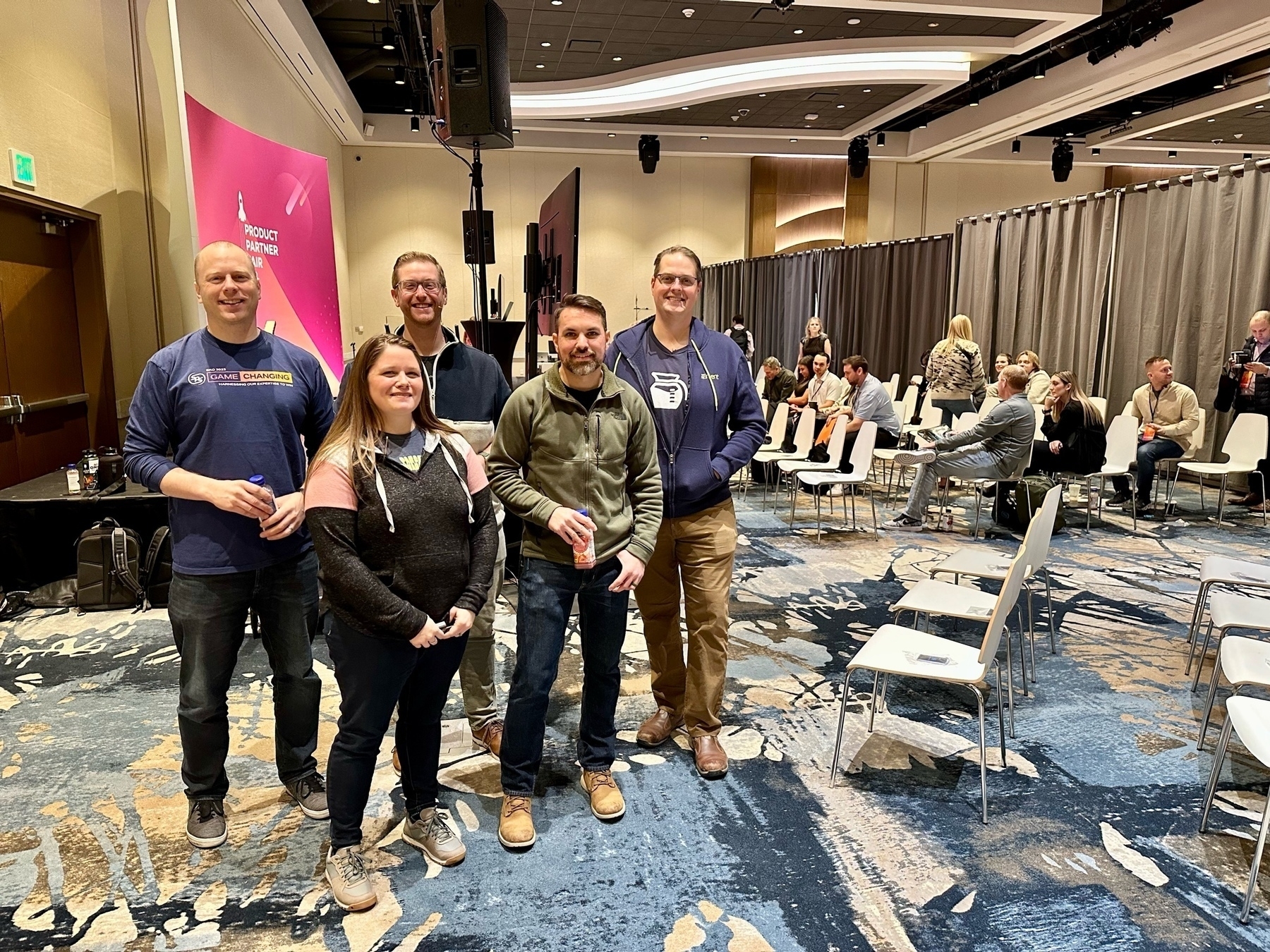
Mazie completed her first sewing project making this summer dress with the expert guidance of my Mom who has known her way around a sewing machine since she was young on the farm. It was awesome to see the sesne of accomplishment on Mazie’s face wearing something that she made!
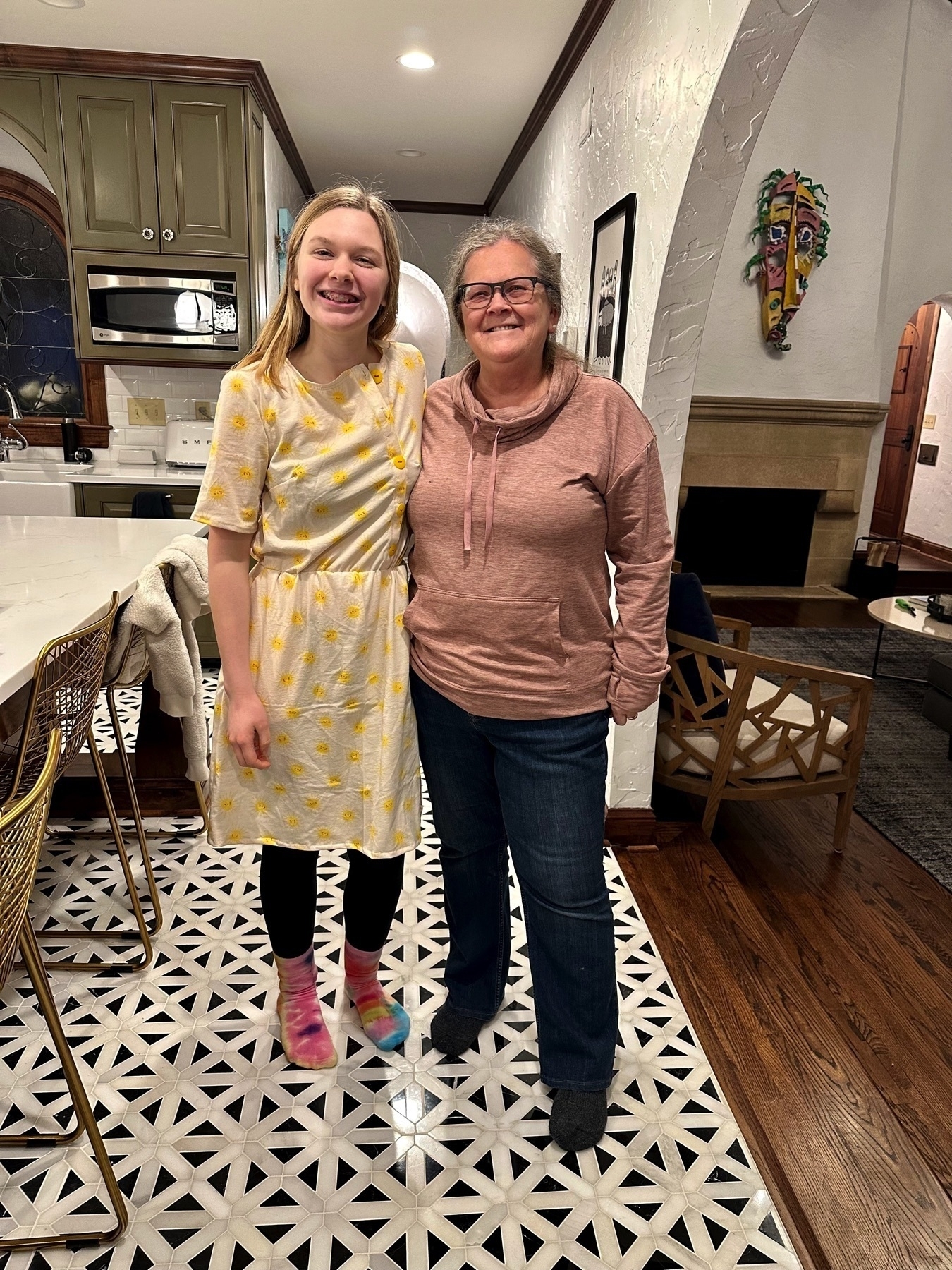
David Horsager on Trust
David Horsager of Trust Edge gave a fabulous keynote for #TeamSPS 2023 Sales Kickoff. David’s passion about trust and how it impacts everything around us is very thought provoking. His Eight Pillars of Trust are a great tool to consider team and self-improvement: Clarity, Compassion, Character, Competency, Commitment, Connection, Contribution, and Consistency.
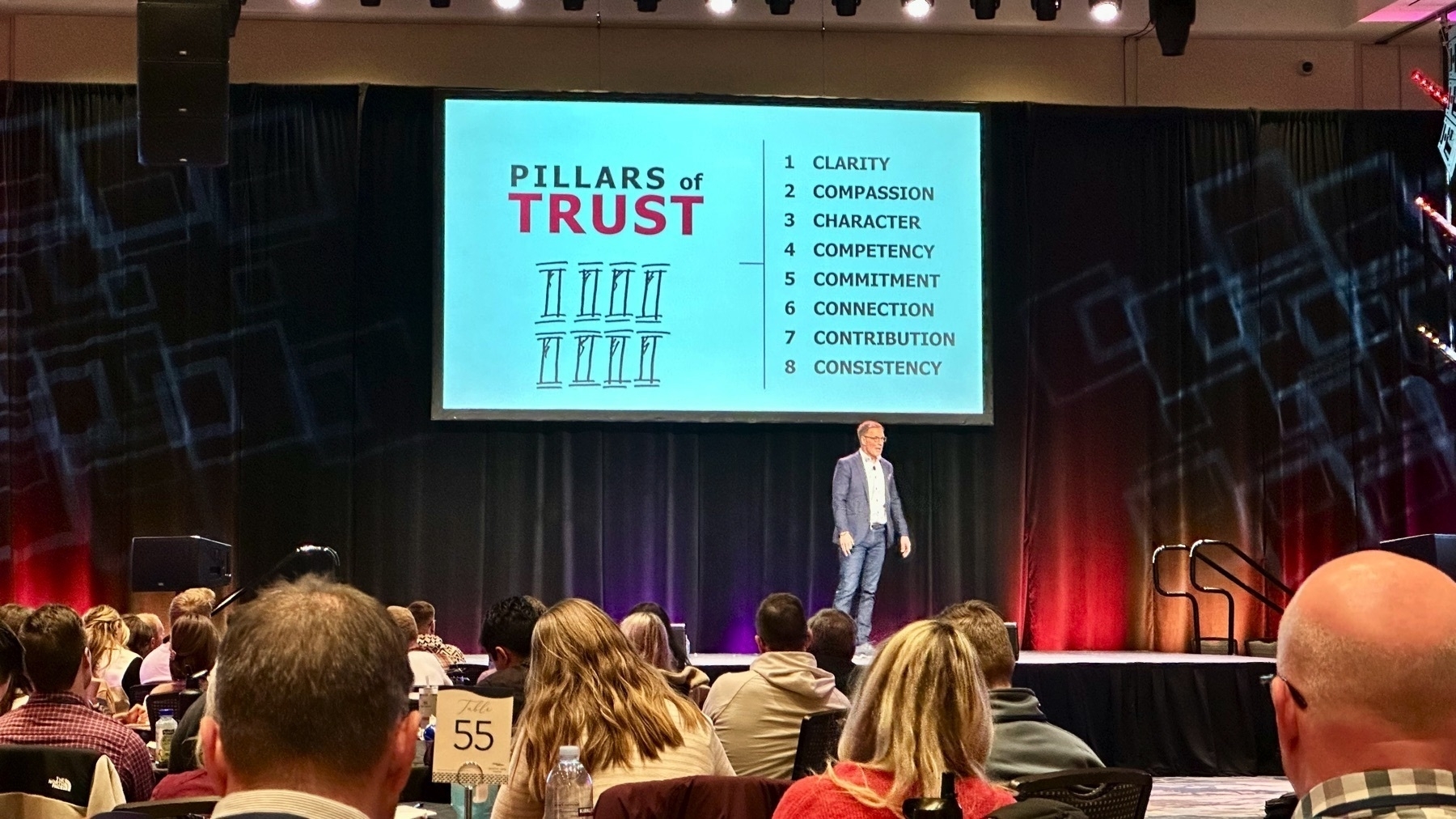
POAP Family
The new POAP Family feature is a cool way to see what POAPs people share between events. I looked at holders of my 50th Birthday POAP and I was surprised to see that there were 7 Cryptog’s HODLER‘s who had my birthday POAP. The biggest were 13 of the 34 that also had my 51st Birthday POAP.
This kind of graph analysis of POAPs is an interesting extension and a way to build connection.
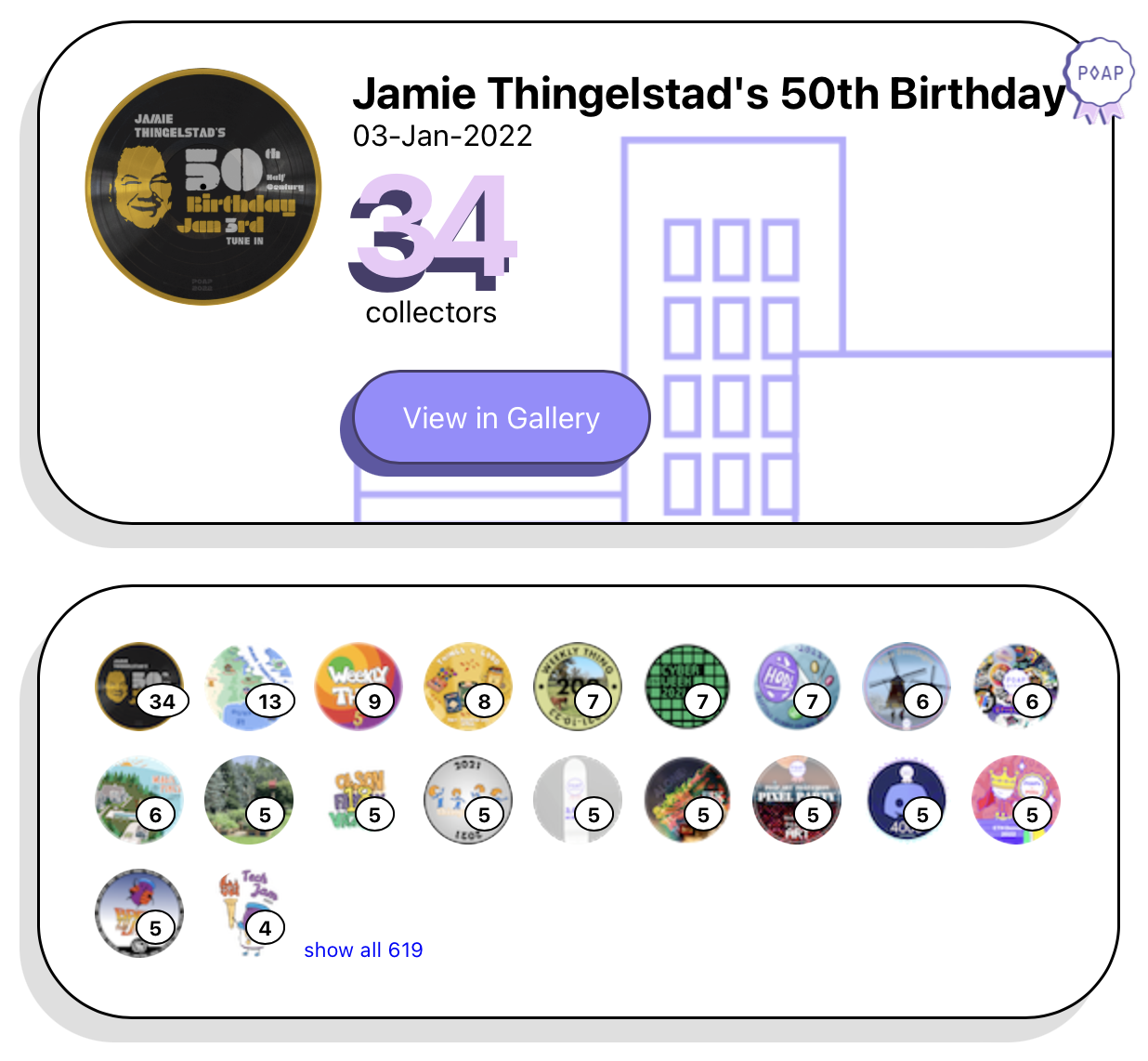
I won 5 SOL from one of my Famous Foxes mission chests this week! 🍀
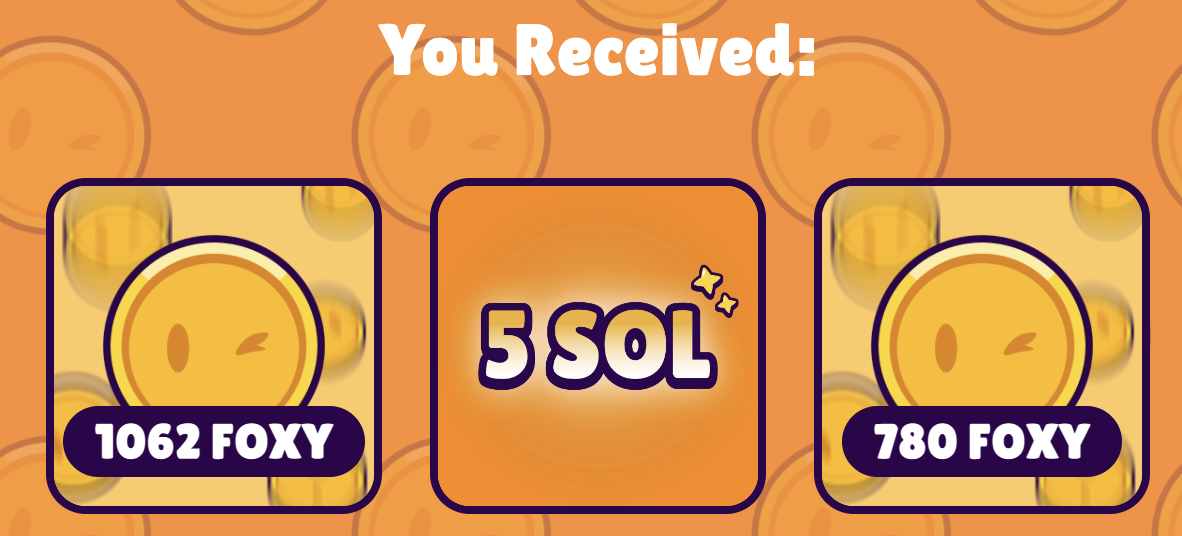
Just bought tickets to see Aoife O’Donovan Plays Nebraska at the Turf Club! I’m a huge fan of Springsteen’s Nebraska and have enjoyed O’Donovan since seeing Crooked Still so many years ago. This will be a great show. 🎶

Semisonic put on a great show filled with new songs and hits from the past. 🎶

It has been a long time since we’ve been to First Ave.

Briefly
This has to be one of the fastest transitions to subscription plan from a beta launch ever. → Introducing ChatGPT Plus
Interesting automation platform like Zapier and IFTTT but designed exclusively for developer use in code. → Trigger.dev - Effortless automation built for developers
Solid progress being made on a lot of fronts, and the pace of development continues to pick up. → Crypto Theses for 2023 | Gravity Fund
Recap of recent ENS events. ENS is one of the most important services in the crypto ecosystem, and I’m very happy with how they are evolving it. → ENS: Everything to Know About the Latest Trends, Milestones
Little sneak peak from an upcoming book by Rachel Lockett including a reference to me and the Weekly Thing. 🤩 → Owning your Professional Development Journey | LinkedIn
This breakdown of the market value of Aptos is a great example where crypto prices are completely random. → Blockworks Weekly Recap: Aptos
Super important utility that allows you to sever agreements with different crypto services from accessing your wallet. Good to run on occasion and remove things you don’t use or recognize. → Revoke.cash - Revoke your Ethereum token allowances
Good detailed breakdown of name resolution in a cluster. DNS is one of those services that always seems simple, but gets complex very fast. And when it doesn’t work, everyone has a very bad day. → The life of a DNS query in Kubernetes — NsLookup learning
Free option over other services like Calendly. The constant calls to action to invite your team to upsell can get annoying fast though. → Cal.com | Open Scheduling Infrastructure
Very cool to make handwritten text. → Calligrapher.ai: Realistic computer-generated handwriting
Interesting new scripting language that is designed to be embeddable. → Cyber - Fast and concurrent scripting
Fortune
Here is your fortune…
Chicken Little only has to be right once.
Thank you for subscribing to the Weekly Thing!
Recent Issues
- Weekly Thing #239 / Helmets, Bear, Smile
- Weekly Thing #238 / Addiction, Disruption, Intentional
- Weekly Thing #237 / Ethereum, Zelensky, Fadell + Erratic Narratives
- Weekly Thing #236 / ChatGPT, Reading, Legitimacy
- Weekly Thing #235 / TikTok, Busy, Stories
About
I once created a fun travel game about identifying mathematical relationships in the numbers that appear on road signs, called Road Sign Math! I launched a website to share the signs and had 30 people submit over 250 road signs from every continent in the world!
This work by Jamie Thingelstad is licensed under CC BY-SA 4.0.
My opinions are my own and not those of any affiliates. The content is non-malicious and ad-free, posted at my discretion. Source attribution is omitted due to potential errors. Your privacy is respected; no tracking is in place.